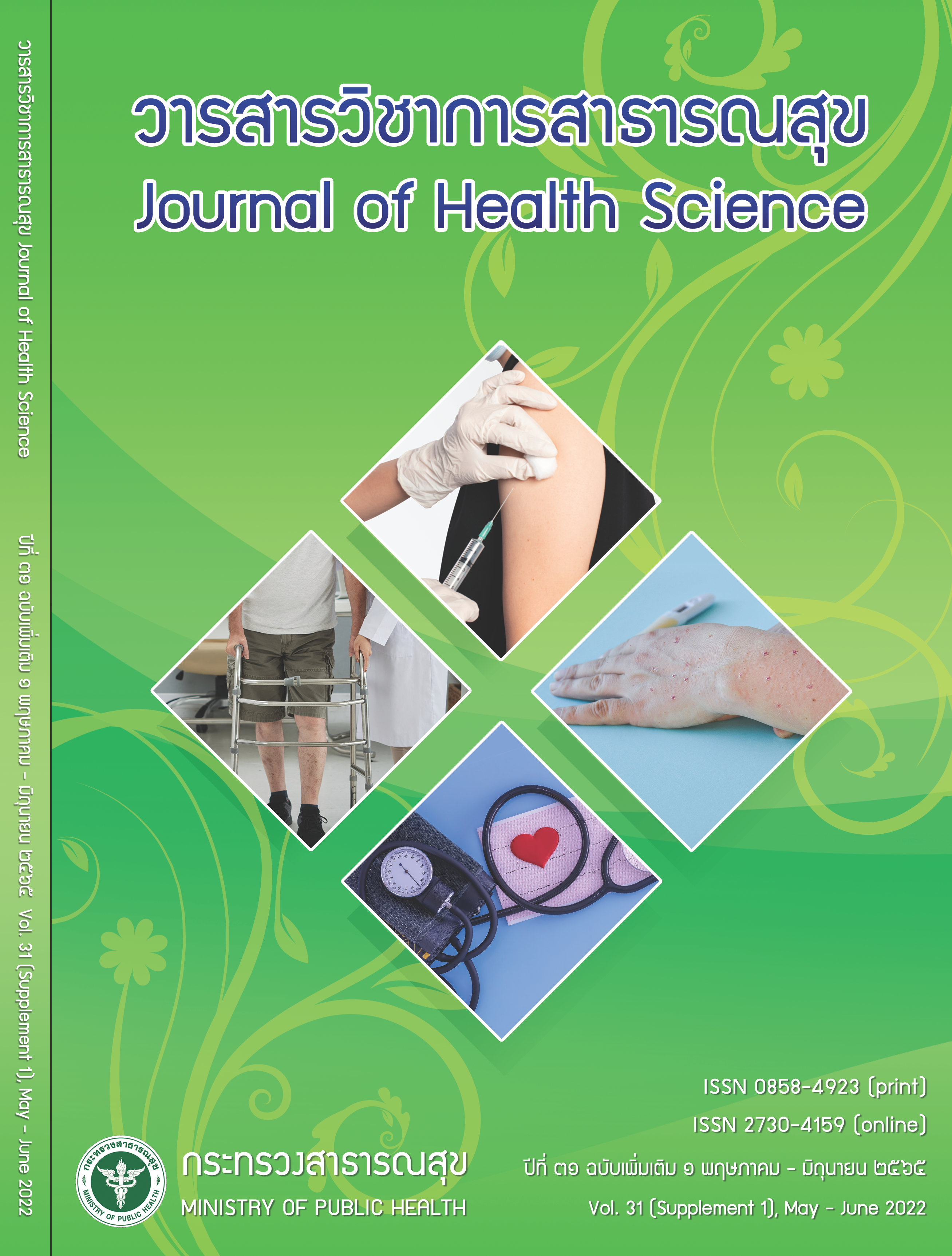Effects of COVID-19 Home Confinement on Physical Activity and Eating Behavior in Sports Science Students
Keywords:
COVID-19, physical activity, eating behaviors, home confinementAbstract
While isolation is a necessary measure to protect public health, it may alter physical activity (PA) and eating behaviors in a health comprising direction. This study aimed to investigate the effects of COVID-19 home confinement on university students’ physical activity and eating behavior. Participants were student (n=240) from the Faculty of Sports Science, Kasetsart university. An online questionnaire was administered retrospectively for pre-pandemic and during the pandemic to examine students’ physical activity and eating behavior. Data were analyzed using Wilcoxon Signed Ranks Test. It was found that the COVID-19 home confinement had a negative effect significantly on all PA intensity levels (114.92 VS 80.22; z= -5.25, p<0.01). Additionally, participants increased their daily sitting time and the score of unhealthy diet (71.50 VS 100.66, z=-3.14 and 67.67 vs 87.22; z=-9.14, p<0.01) indicated that they had significantly unhealthier meal patterns (type of food, eat out of control, snacks, number of main meals) during the confinement. It could be attributed to eating out of anxiety or boredom, decrease in motivation to maintain healthy eating, or an increase in mood-driven eating. However, binge drinking of alcohol decreased, indicating the lover opportunity to be surrounded by other drinking peers. The results of the survey indicate a negative effect of home confinement on PA and diet behavior with a significant increase in sitting time and unhealthy diet, indicative of a more sedentary lifestyle.
Downloads
Downloads
Published
How to Cite
Issue
Section
License

This work is licensed under a Creative Commons Attribution-NonCommercial-NoDerivatives 4.0 International License.







